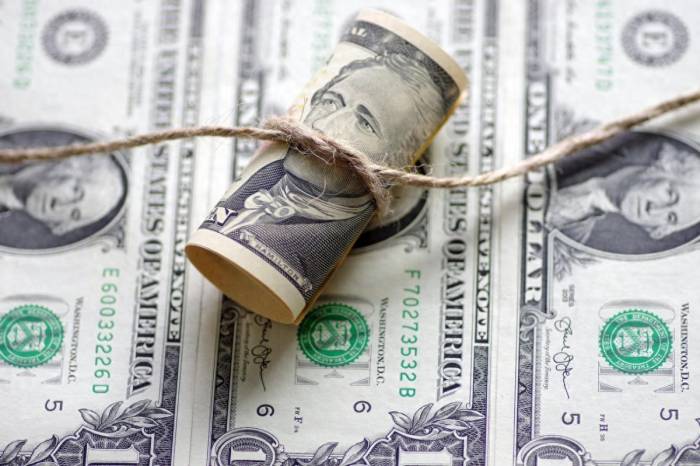China Dumps US Bonds; Japan CB Aggressively Sells
On August 5th, the sudden interest rate hike of the yen brought to mind the "Black Monday" of global stock markets. Now, with the electoral victory, the dollar is becoming increasingly strong while the yen has weakened significantly.
According to the latest U.S. Treasury bond data, as the two largest foreign creditors, China and Japan remain in sync once again; Japan cut its holdings by $5.9 billion while China reduced its holdings by $2.6 billion. Nevertheless, the yen's exchange rate against the dollar is nearing the "quasi-intervention level", which has sent alarm bells ringing for international investors who are increasingly betting on a Japanese interest rate hike.
So why would a rate hike in Japan trigger "earthquakes" in global financial markets?
China and Japan simultaneously offload U.S. debt
For those who pay attention to U.S. Treasury bonds, China and Japan, as the two largest creditors, are undoubtedly crucial topics of discussion.
Imagine if they suddenly decided to sell all their bonds; the impact would be akin to dropping a bomb, causing significant tremors in the financial markets.
However, such actions could also create troubles for themselves.
Advertisement
Therefore, whether to continue holding or to sell these bonds requires careful consideration.
For China, reducing U.S. debt holdings largely stems from its own economic strategy, particularly concerning the allocation of foreign exchange reserves.
As China's economy matures gradually, the need for adjustments in foreign exchange reserve asset allocation has correspondingly evolved.
China has always prioritized the independence and stability of its economic development; thus, reducing its holdings of U.S. Treasury bonds can effectively mitigate risks faced.
Meanwhile, the myriad fluctuations in the international financial market, such as the unpredictable economic policies from the U.S., which initially opened the door for rate cuts, only to recently announce a slower pace or cessation of those cuts, present confusing adjustments that lead to significant volatility risks for U.S. Treasury bonds.
In the face of such a complex backdrop, China naturally must seek ways to actively respond to these risks, including finding channels to reduce excessive reliance on dollar assets while increasing investments in other asset types, such as gold.
As a member of the U.S.-Japan alliance, Japan is again cutting its holdings of U.S. debt; the recent trends in exchange rates indicate that the yen’s performance in the global financial market has become worrying, struggling to maintain its status on the international stage. To ensure it has the funds to intervene in its own currency market and stabilize the value of the yen, the Japanese government has reduced its U.S. Treasury bond holdings.
However, facing a strong dollar has pushed the yen to the "quasi-intervention level": 1:154, once again making international investors cautious.
Japan's rate hike, the earthquake in global financial markets
Why the caution?
Let us recall the sudden interest rate hike by the Bank of Japan in August, which resulted in a massive liquidation of yen financing positions, triggering a ripple effect that impacted global economies and led to turmoil in Japan's stock market.
The yen's exchange rate has been plummeting since last September, dropping from 140 to around 155 today, nearly returning to the range that prompted previous government intervention.

Suppose you hold $100 worth of U.S. Treasury bonds; it feels like a vault.
If you use it as collateral to borrow 80 yen and then buy more U.S. Treasury bonds with yen to re-collateralize, repeating this process allows wealth to exponentially grow.
With nearly no interest to pay on yen loans and U.S. Treasury yields reaching 5%, annualized returns can even exceed an astonishing 20%.
However, if the Bank of Japan suddenly announces an interest rate hike to 1%, the wind would shift abruptly.
First, the financing itself shrinks;
More seriously, as interest rates rise and the yen strengthens, the value of yen converted from U.S. bonds depreciates, wiping out the original profit margin.
You will incur greater losses with more international financing held.
At this point, capital has nowhere to escape; it can only frantically sell U.S. Treasury bonds to regain value-preserving yen. Once this situation begins to brew, the U.S. Treasury market may face the risk of a complete collapse.
Recently, inflation levels have been continuously rising and U.S. Treasury yields are soaring, sending ripples across global financial markets.
The event of Japan's potential interest rate hike will undoubtedly have profound implications for Japan's economic condition, possibly provoking a unique trend of tightening monetary policies in countries worldwide.
This, in turn, means that capitalists who issue bonds in the Japanese market, borrow in yen, and then exchange for dollars to invest in the U.S. will be faced with increased risks.
For them, the wisest course of action now is to sell U.S. Treasury bonds while they can still fetch a good price, closing out their positions to alleviate the pressure stemming from this risk.
Currently, many investors keen on Japanese assets are looking forward to a change in the yen's exchange rate, as for international capital, another tsunami may soon be upon them.
Leave a Reply